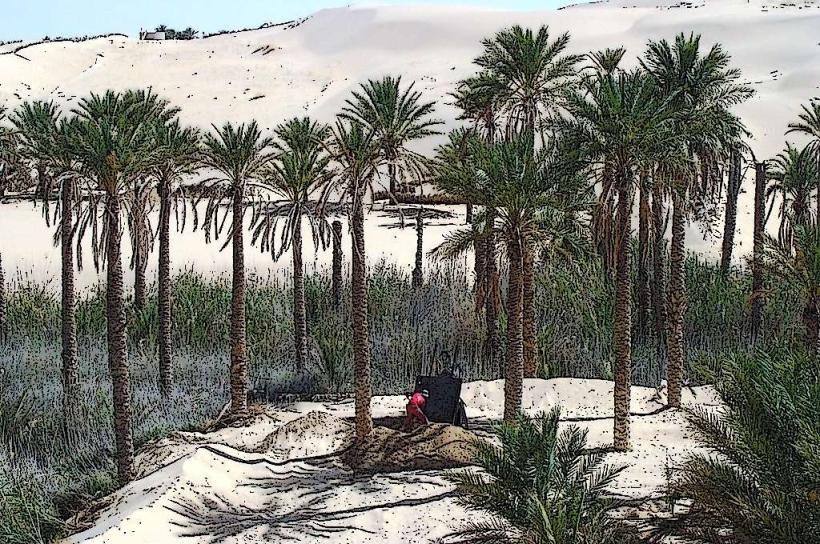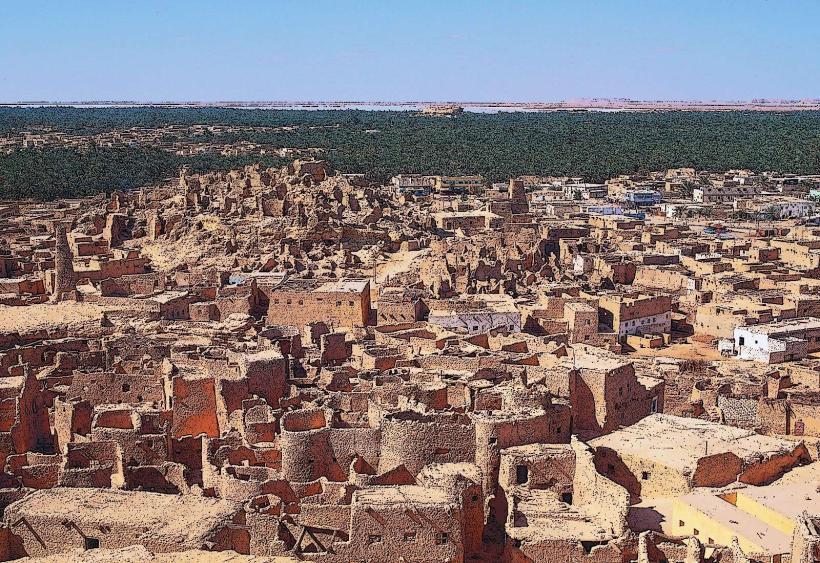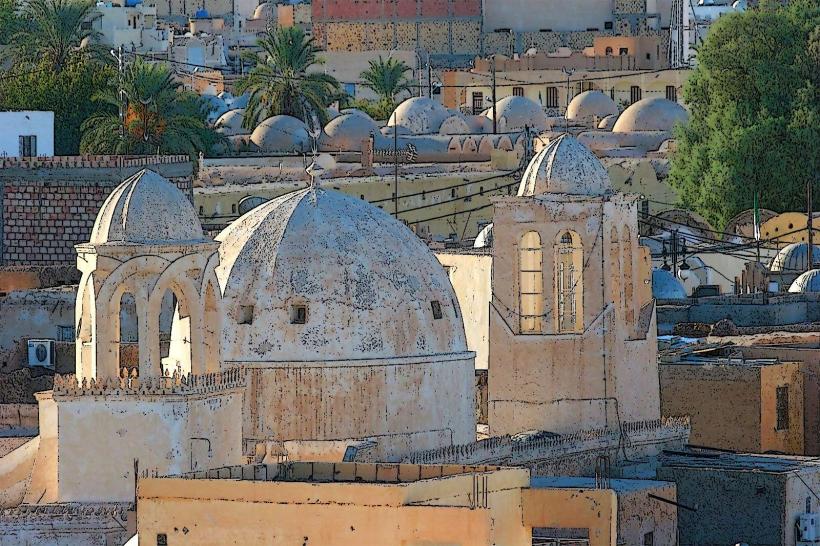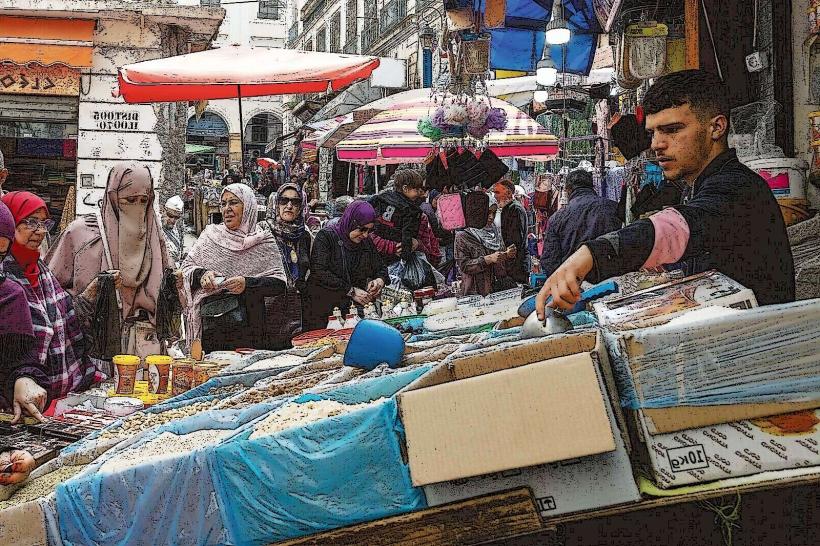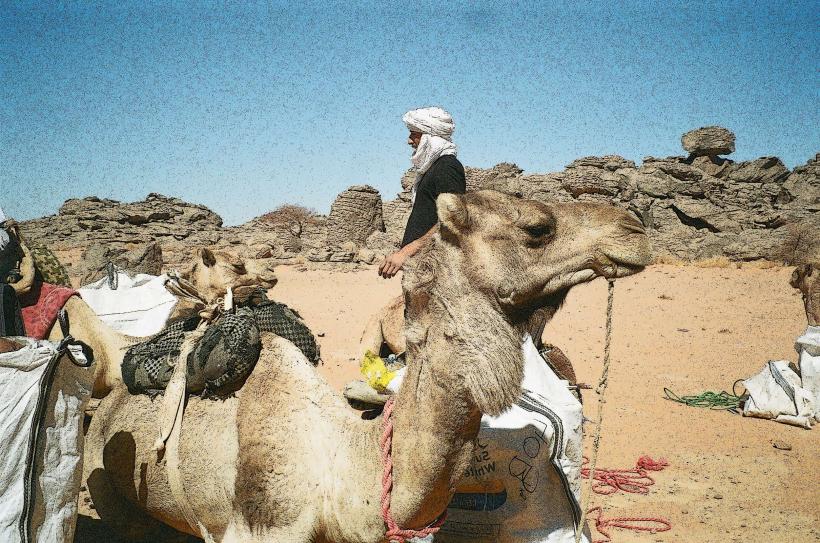Information
City: El OuedCountry: Algeria
Continent: Africa
El Oued, Algeria, Africa
El Oued functions as the primary agricultural and commercial pivot of the Souf region in the Grand Erg Oriental. Situated in a specialized "sea of sand," it serves as a node for high-intensity Saharan farming, traditional textile production, and desert logistics. In January 2026, the city is defined by a state of monumental budget mobilization, as the Algerian government allocates $5.84 billion to modernize agricultural infrastructure and transition the Souf region into a high-capacity food export corridor.
Historical Timeline
10th–11th Century: Settled by the Banu Hilal tribes; specialized in developing "Ghout" oases.
1950s: Emerged as a primary center of resistance during the War of Independence; known as a strategic transit node for supplies.
2025 (Nov 3): Fiscal Reorientation. The Ministry of Agriculture announced a 4% increase in the 2026 budget to DZD 764.2 billion, specifically targeting modernization in Saharan wilayas like El Oued.
2026 (Jan 13): Digital Integration. El Oued integrated into the new Regional Space Communications framework to use satellite data for monitoring groundwater levels and "Ghout" health.
2026 (Jan 20): Rail Logistics Calibration. The National Agency (ANSRIF) confirmed El Oued’s role in the specialized Hauts Plateaux and South Eastern rail strategy, aiming to link Souf agricultural products directly to northern Mediterranean ports by 2030.
Demographics & Population
The metropolitan population is approximately 158,000 (2026 estimate), with the wider province exceeding 750,000. The demographic is characterized by a high density of the Souafa people, known for their specialized entrepreneurial culture and expertise in Saharan hydraulic engineering. In 2026, El Oued maintains one of the highest agricultural labor densities in Algeria.
Urban Layout & Key Districts
The Old City (City of a Thousand Domes): The specialized historical core; characterized by high-density vaulted brick architecture designed for passive thermal regulation.
El-Gouazine: A specialized commercial district; serves as the primary node for the regional trade of textiles, dates, and livestock.
The Ghouts: A specialized agricultural ring surrounding the city; funnel-shaped craters dug into dunes to allow date palms to reach the water table without surface irrigation.
Guémar: A specialized northern satellite ksar (20km); known for its historic Zaouia (Sufi lodge) and traditional Saharan architecture.
Kouinine: A specialized residential growth node to the northwest; housing the city's expanding administrative and professional class.
Top City Landmarks
Sidi Salem Mosque: A specialized architectural node; the tallest minaret in the city provides the primary panoramic viewpoint of the thousand white domes.
The Friday Camel Market (Souk al-Jum'a): A specialized trade node; one of the last high-fidelity traditional camel markets in North Africa.
The Museum of the Souf: A specialized cultural node documenting the ethnology, Sufi history, and unique hydraulic techniques of the region.
Chott Felrhir: A specialized salt lake to the north; the lowest point in Algeria, serving as a primary node for salt extraction and ecological research.
Lalla Khadidja Dunes: A specialized high-density sand sea surrounding the city; serves as the primary gateway for Saharan tourism and 4x4 logistics.
Transportation & 2026 Logistics
Regional Road N16: The specialized logistical spine; connects El Oued to Biskra (220km) and the Tunisian border (80km).
Guémar Airport (ELU): A specialized domestic hub; in 2026, it is managing increased freight capacity for the export of early-season potatoes and Deglet Nour dates.
Modern Irrigation Node: In 2026, the government is installing specialized pivot irrigation sensors across the province to transition 15,000 hectares from traditional "Ghout" methods to high-yield industrial farming.
Rail Connectivity: While not currently on a main line, El Oued is the primary focus of the 2026 feasibility study for the Touggourt–El Oued rail link, intended to integrate the Souf into the national heavy-haul network.
Safety & Environment
The general safety level is High. Warning: Visitors must be aware of the extreme temperature fluctuations; January 2026 nights can drop to 4°C, while daytime highs reach 20°C. Environmental Note: As of January 2026, the "Rising Water Table" is a specialized challenge; local engineering is focused on draining excess water that threatens the foundations of the historic domed buildings.
Local Cost Index (2026 Estimates)
1 Night (Secure Saharan Guesthouse): DZD 6,500 – 11,000 (~$48 – $82)
Traditional "M'tabga" (Souf Stuffed Bread) Meal: DZD 300 – 600
High-Quality "Souf Cross" Carpet: DZD 25,000 – 70,000
Monthly Rent (2-BR Apartment): DZD 18,000 – 30,000
1L Gasoline: DZD 45.00
Facts & Legends
El Oued is the site of the "Legend of the Thousand Domes," a title coined by explorer Isabelle Eberhardt to describe the specialized architecture intended to mimic the surrounding dunes. A verified fact is that El Oued is the largest producer of potatoes in Algeria, accounting for over 40% of national output in 2025. Historically, the city was a critical junction on the trans-Saharan caravan routes. In 2026, the city remains the specialized global epicenter for "Arid-Land Agronomy," hosting international researchers during the January harvest cycle to study the high-fidelity resilience of the "Ghout" system.

